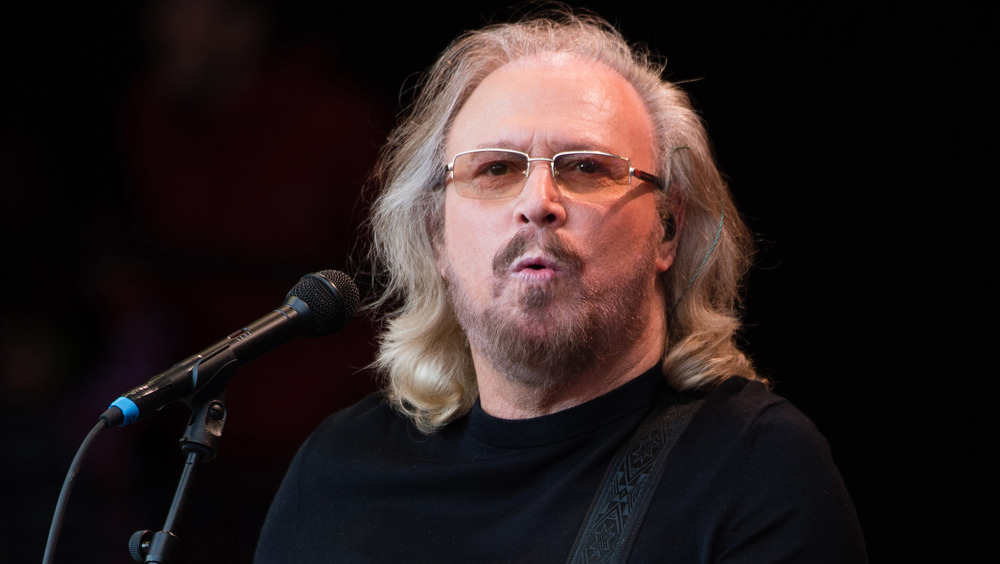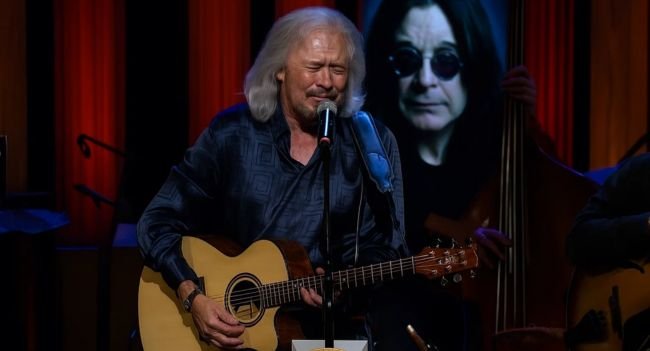London, UK — Wembley Stadium was buzzing with excitement. It was supposed to be a joyful evening — a once-in-a-lifetime celebration of Barry Gibb’s remarkable five-decade career. But as the sky darkened and golden stage lights lit up 80,000 fans, something changed. The energy shifted. A quiet hush settled over the crowd.
Then Barry stepped into the spotlight.
Just hours earlier, the world had received heartbreaking news: Ozzy Osbourne had passed away. The rock legend’s death was still fresh, and Barry Gibb, guitar in hand, couldn’t ignore the weight in the air.
“Tonight was supposed to be about celebration,” he said softly, emotion catching in his throat. “But I can’t stand here and sing without honoring a man who fought harder than anyone I’ve ever known. Ozzy wasn’t just a voice. He was a force of nature — raw, broken, and beautiful.”

There was no script. No setlist for what came next.
With nothing but an acoustic guitar and a heavy heart, Barry began to sing “To Love Somebody.” A Bee Gees classic — but tonight, it was something else entirely. Each line, once a love ballad, now echoed with loss and remembrance.
“You don’t know what it’s like… to love somebody… the way I loved you.”
Across the stadium, the response was immediate. People wept. Some held their partners close, others stood silently with hands over their hearts. On the screen behind Barry, a black-and-white tribute to Ozzy played: concert moments, quiet family scenes, raw glimpses of the man behind the music. It wasn’t polished. It was real — just like Ozzy.
When the last note faded, Barry didn’t say much. He simply looked to the sky, placed his hand over his heart, and whispered:
“Thank you, brother. For never giving up. For teaching us how to survive.”
It was a simple gesture, but one that said everything.
Later backstage, Barry reflected on the moment.
“Ozzy and I came from very different places musically,” he said, “but we both carried pain in our songs. He didn’t pretend to be perfect — and that honesty, that bravery… it meant something.”
Though the Bee Gees and Black Sabbath lived on opposite ends of the musical spectrum, Barry reminded everyone that true legends don’t follow genres — they follow their hearts. And Ozzy’s heart, wild and wounded as it was, had always been wide open.
For those lucky enough to be in Wembley that night, the concert became more than music. It became memory. It became tribute. It became healing.
Barry Gibb gave the world a moment it won’t forget — a reminder that even in the loudest lives, silence speaks the loudest. And that the music we carry in our hearts doesn’t die — it just finds new voices to sing it forward.
